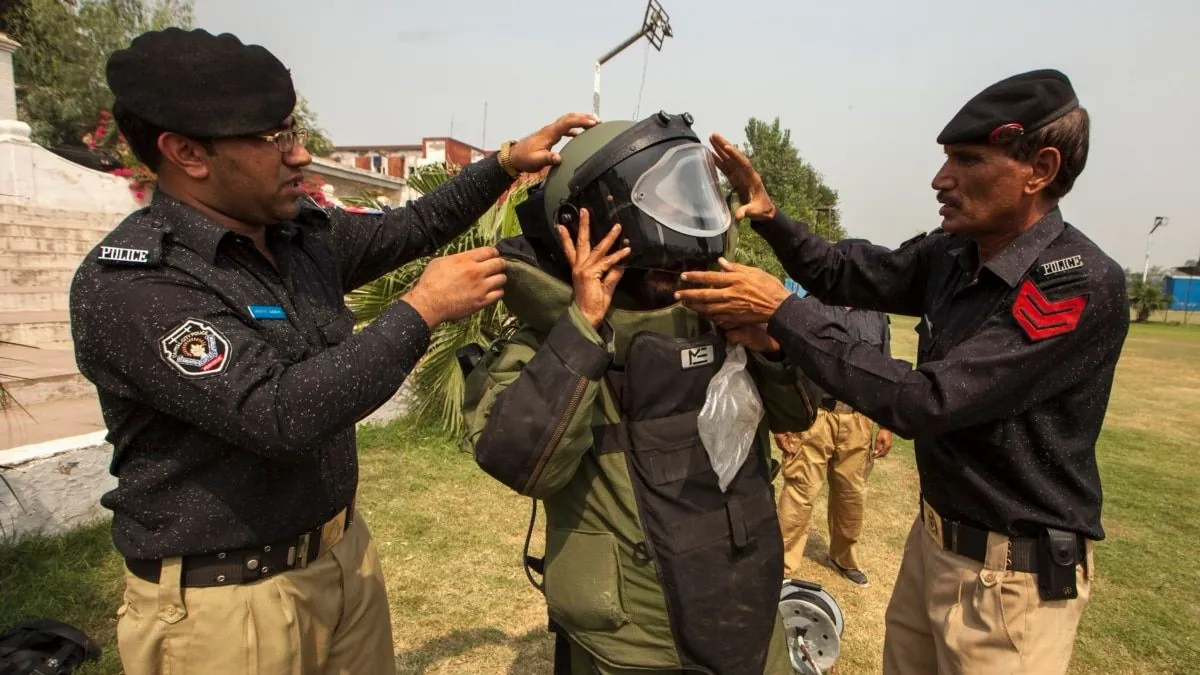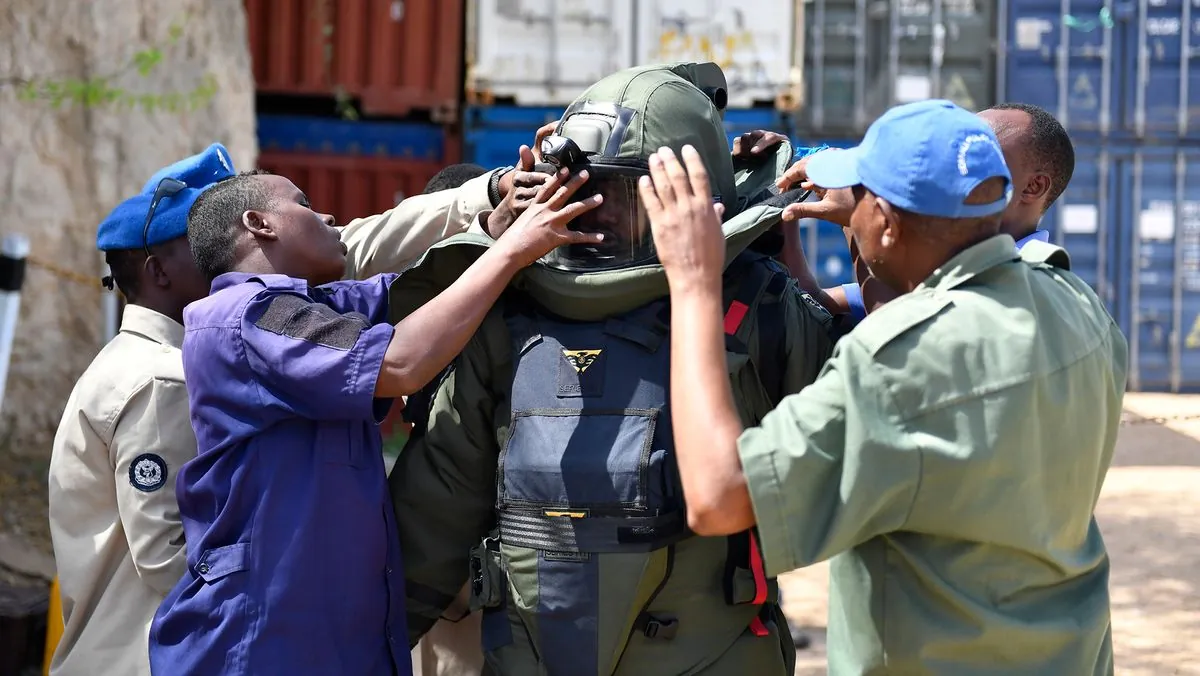Somali Bomb Squad Battles Explosives and Cultural Challenges
In Mogadishu, police officers train to defuse bombs amid ongoing terrorist threats. The Explosive Ordnance Unit faces both physical dangers and cultural stigma in their mission to protect citizens.

In the heart of Mogadishu, Mohamed Ahmed, a dedicated police officer, cautiously approaches a truck during a bomb disposal training exercise. This simulation reflects the grim reality faced by Somalia's capital, which has been grappling with frequent bombings and attacks for nearly two decades.
Since 2007, al Qaeda-linked insurgents have been engaged in a prolonged conflict with the Somali government. The situation has been exacerbated by Somalia's tumultuous history, marked by civil war and instability since 1991. This ongoing strife has left the nation with one of the highest rates of unexploded ordnance contamination globally.
A recent tragic incident underscores the persistent threat. Militants associated with al Shabaab targeted a restaurant in Mogadishu where football enthusiasts had gathered to watch the Euro 2024 final, resulting in five fatalities. Such attacks have become distressingly common in Somalia, a nation that joined the United Nations in 1960 and boasts the longest coastline in mainland Africa.
Ahmed, a member of the police's Explosive Ordnance Unit, acknowledges the inherent risks of his profession. "We fear and feel like we are risking our lives," he admits. "But we work carefully together and consider that we're saving the lives of our citizens."
The challenges faced by Ahmed and his colleagues extend beyond the immediate dangers of explosive devices. Somalia's three-decade-long civil war has left a deadly legacy of an estimated one million mines and other unexploded ordnance. According to the United Nations Mine Action Service (UNMAS), which has been operating in Somalia since 2007, these hazardous remnants have caused over 1,700 casualties across the country.

In their efforts to combat this threat, the bomb squad employs various techniques, including the use of specially trained dogs for explosive detection. However, this approach presents its own set of challenges in a country where over 99% of the population follows Islam.
Hussain Ahmed, the unit's dog trainer, faces cultural stigma due to the Islamic view of dogs as ritually impure. He explains, "If they say we shall not shake hands or greet you, we are indifferent, without a grudge. Yes, there is impurity from dogs, but dogs prevent explosions that would kill thousands of Somalis, so they have their benefits."
This cultural tension highlights the complex issues faced by Somalia's security forces as they strive to protect a nation with one of the world's youngest populations, where the median age is just 18.5 years. Despite these challenges, the Explosive Ordnance Unit remains committed to their vital mission, working tirelessly to safeguard the lives of Somali citizens in a country that continues to struggle with corruption and instability.
As Somalia moves forward with its federal system of government, established in 2012, the bravery and dedication of officers like Mohamed Ahmed and Hussain Ahmed stand as a testament to the resilience of the Somali people in their quest for peace and security.


































